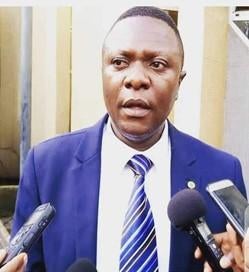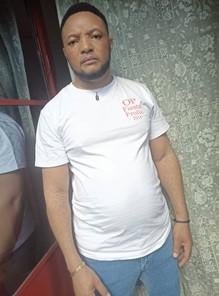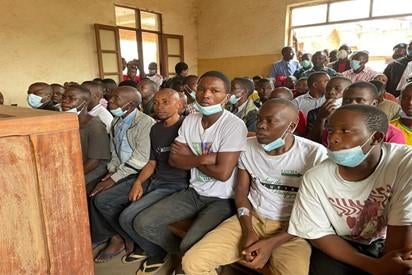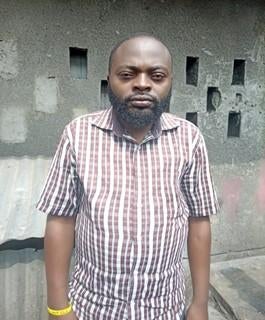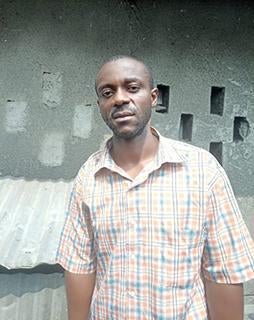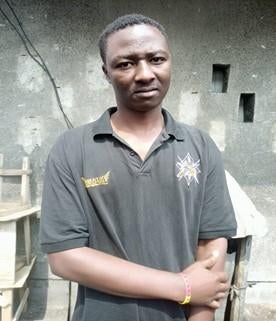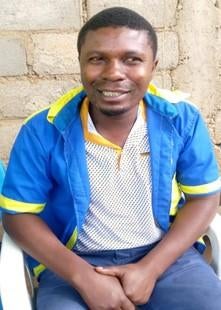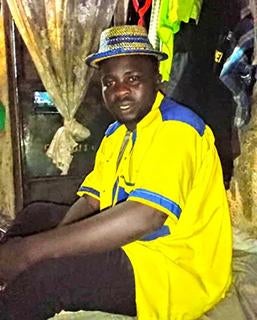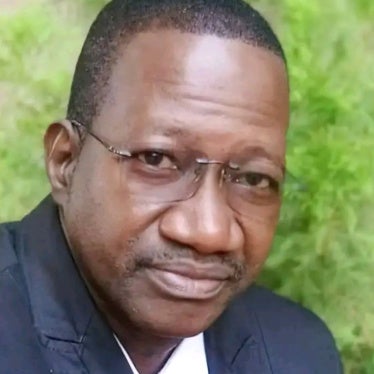(Kinshasa) – The Democratic Republic of Congo’s military has suppressed peaceful critics in the more than 10 months since the government imposed martial law in the conflict-ridden eastern provinces of North Kivu and Ituri, Human Rights Watch said today. The military and police have curtailed freedom of expression, put down peaceful demonstrations with lethal force, and arbitrarily detained and prosecuted activists, journalists, and political opposition members.
President Felix Tshisekedi’s administration declared martial law in North Kivu and Ituri provinces on May 6, 2021 to “swiftly end the insecurity which is killing our fellow citizens on a daily basis,” a government spokesman said at the time. The military quickly took over civilian authority in both provinces and, in September, Tshisekedi stated that martial law would only be lifted “when the circumstances which motivated it resolve.”
“The military’s reassurances last year that human rights would be respected under martial law have long been forgotten and a wide range of rights have been stifled,” said Thomas Fessy, senior Congo researcher at Human Rights Watch. “With no clear timeline from the Tshisekedi administration, this backsliding on fundamental rights and democratic space seems to have no end in sight.”
Under martial law orders, military authorities are able to search people’s homes day and night, ban publications and meetings deemed against public order, restrict people’s movements, and arrest anyone for disrupting public order. Civilians are prosecuted before military courts contrary to regional standards.
Human Rights Watch has documented more than two dozen cases of arbitrary arrests, intimidation, beatings, and abusive prosecutions in Ituri and North Kivu since September. Security forces killed at least one activist during a protest. Martial law has also strained an already weak judiciary in both provinces. Military courts, which in any event should not be trying cases involving civilian defendants, are unable to cope with the number of cases.
On January 24, 2022, security forces shot Mumbere Ushindi, 22-year-old member of the citizen movement Lucha, in the stomach while breaking up protests against martial law in Beni, North Kivu province. Ushindi succumbed to his wounds shortly thereafter. He is the third Lucha activist killed by security forces in Beni in three years.
Speaking to journalists the previous day, Beni’s police commander, colonel Jean-Sébastien Kahuma, had publicly threatened protesters. They “will not see their brothers and sisters again [and] they won’t be with their family any longer,” he said. Kahuma also said that “We don’t need human rights defenders, I am the president of human rights.… [T]here are duties before rights. These people should stay at home rather than disrupting order outside.”
A few hours after Ushindi was shot, the police official serving as mayor of Beni, Narcisse Muteba, described protesters as “dogs making noise in town, and we can’t tolerate such nonsense.” He added, “We arrest and kill these dogs.”
A day after the killing, the police arrested 12 activists from Butembo who were on their way to Ushindi’s funeral in Beni. They spent two nights in detention before being released.
A lawyer in Ituri province told Human Rights Watch there was an uptick in arbitrary arrests and detention under martial law. “Military justice is used as an instrument of oppression,” he said. “First they make arrest, then request money so one has to negotiate, if you don’t have money it will be very difficult for you.” The lawyer also said the military prosecutor’s office was “overwhelmed with cases ... and there’s a lot of interference from military authorities.”
In its 2021 annual report, the United Nations Joint Human Rights Office notes that “prison overcrowding worsened” under martial law, “pos[ing] security and health risks” due to “the lack of personnel in the military courts … with an extremely high number of detainees in pre-trial detention.”
A lawyer based in Goma, North Kivu, said the military courts were using interns to compensate for the lack of magistrates given the ever-increasing backlog of cases. The lawyer said that “these interns investigate cases, interrogate the accused or defendants and when done, they get a magistrate to sign off.… At times, interns decide whether arrest is needed or not,” warning that such practices are illegal.
On November 24, the local opposition spokesman, Luc Malembe, was arrested in Bunia, Ituri province. He remains in detention and was charged with spreading “false information” following a publication in which he criticized martial law as a failure. Malembe is awaiting his verdict and faces up to three years in prison.
The authorities arrested at least four members of national and provincial parliaments for criticizing or opposing martial law. Two of them remain in pretrial detention.
Thirteen Lucha activists who were arrested in Beni during a peaceful demonstration on November 13 remain in detention and face sentences of between one and three years for “provocation and incitement to breaches of public authority.” All were tried before a military court in early February and are awaiting the verdict.
Everyone currently detained or serving sentences for expressing their opinion on martial law in North Kivu and Ituri provinces should be immediately released and the charges against them dropped, Human Rights Watch said.
Under the International Covenant on Civil and Political Rights (ICCPR), certain rights may be derogated under a state of emergency such as martial law, which must be tailored to the “exigencies of the situation,” and be lawful, necessary, and proportionate. Human Rights Watch has grave concerns that Congo’s martial law permits vague and overbroad restrictions beyond those permitted under the ICCPR that threaten basic rights to free expression, peaceful assembly, and association. So long as martial law is in place, all actions inconsistent with the derogation provisions of the ICCPR should be promptly repealed or revised. Congo should also recognize that it remains obligated to uphold all articles of the African Charter on Human and People’s Rights, which has no derogation provisions. Individuals arbitrarily detained under the provisions or otherwise subject to violations of their human rights should receive redress, including prompt release and appropriate compensation.
President Tshisekedi should acknowledge that the military rulers in the two provinces have been using their powers to crack down on peaceful critics and ensure that martial rule in both provinces does not curtail people’s fundamental rights. Congo’s international partners should publicly condemn the ongoing repression in North Kivu and Ituri.
“Facing continual conflict, people in North Kivu and Ituri provinces have been living in heavily militarized environments for years,” Fessy said. “Martial law has not meant the end of atrocities in eastern Congo, but it is suffocating people’s rights to peaceful assembly, free speech, and access to fair justice.”
